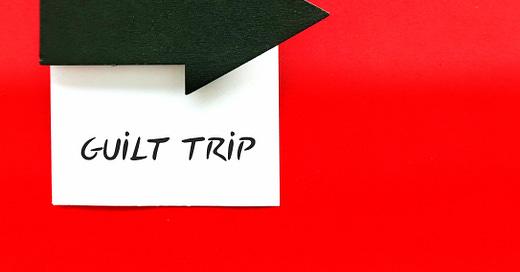The Guilt is Coming from Inside the House
Why you feel bad for setting boundaries, how to address it, and my favorite thing to say to people who can’t take no for an answer.
Happy Monday, my favorite fucklings! Last week I introduced you to the Yes-Men and shared my Why Yes/When No Method for determining which of those little Devils is perched on your shoulder on any given day, urging you to say yes to things you can’t, shouldn’t or frankly don’t want to do.
Are you a People-Pleaser? An Overachiever? A fan of the FOMO? Or j…
Keep reading with a 7-day free trial
Subscribe to No F*cks Given® with Sarah Knight to keep reading this post and get 7 days of free access to the full post archives.




